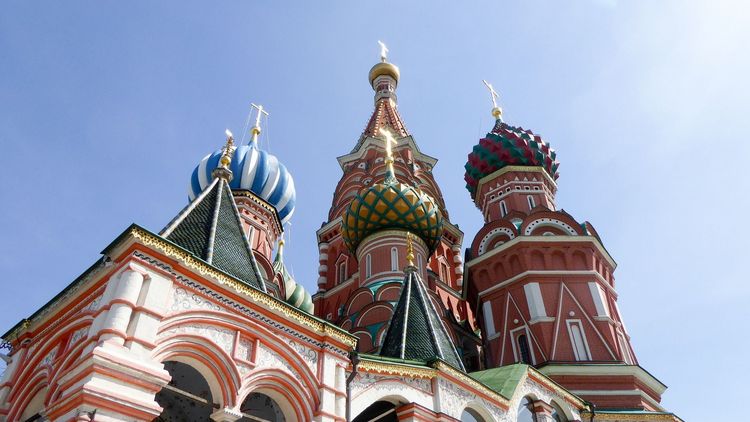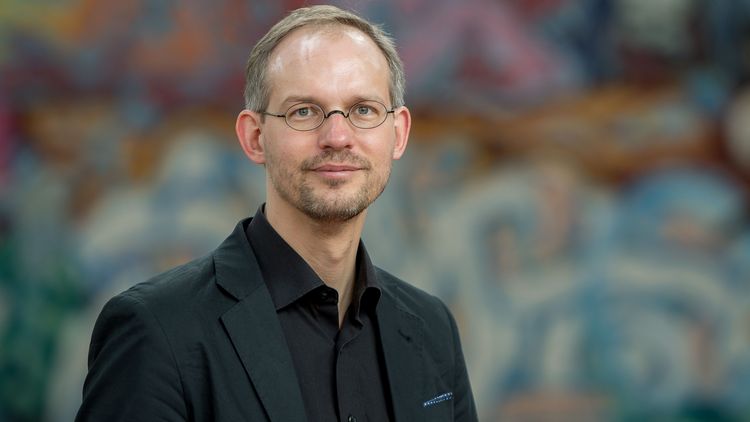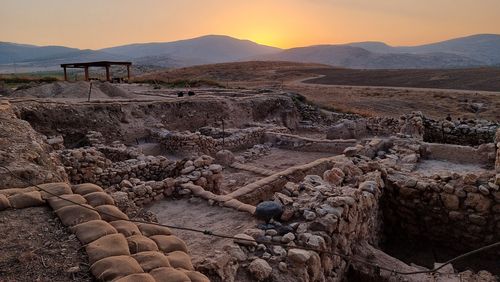What is the role of the Russian Orthodox Church in the religious legitimation of Russia’s war against Ukraine? Theologist Joachim Willems presents an analysis from a theological and religious studies perspective in his guest article.
It will soon be one year since Russia massively expanded the war it began eight years ago with its attack on Ukraine. At the Institute of Theology and Religious Education, I am investigating the role of the Russian Orthodox Church in the religious legitimation of the war. This investigation is relevant to the question of why Putin still appears to enjoy the support of a large section of the Russian population even after February 2022 and the launch of a large-scale mobilisation in September. The chilling memories of the 1990s, which in Russian society are widely associated with chaos, crime and impoverishment, undoubtedly play a part here. Against this backdrop, Putin is seen as the man who led the country out of these crises and managed to stabilise the economic situation and restore Russia’s image on the international political stage. The fact that there are no major protests against the war is also partly due to the massive repression of all those who publicly criticise the “special military operation”, as the war is officially called in Russia, and the perception that such protests would, in any case, be futile in the face of stringent state control of the public sphere. In addition, the impact of extensive state propaganda, which portrays the war as an act of self-defence imposed by the West, on which the country’s very survival depends, should not be underestimated.
Russian propaganda and Christianity
To many of us, the discussions on Russian state television channel Rossiya 1 about whether Ukrainian President Volodymyr Zelensky, who has shed “so much blood, so much Ukrainian blood”, is “the Antichrist” or just a “little demon” serving the devil may seem strange, but such references to Christian doctrine and the apocalyptic tradition in particular are not isolated instances. Putin himself often uses religious motifs, for example in his speech on the occasion of the annexation of Ukrainian territories on 1 October 2022. In Putin’s narrative, the real enemy in the war is the US and its “vassals”, and their “Russophobia” and the “Western elites’ unconcealed animosity towards Russia” are the result on the one hand of Russia having resisted the West’s plundering during the period of colonial conquests, and continuing to resist it now, but on the other hand of his country’s values and religion. According to this narrative, Russia is “a strong centralised state [...] which grew and got stronger based on the great moral values of Orthodox Christianity, Islam, Judaism and Buddhism, as well as Russian culture and the Russian word that were open to all”. The “dictatorship of the Western elites”, by contrast, negates “moral, religious, and family values” by seeking to abolish the traditional family consisting of father, mother and child(ren), by drumming “perversions” into the minds of primary school children and offering them “gender reassignment surgery”.
Patriarch Kirill and the legitimation of the war as defence by Orthodox Christians
Kirill I, Patriarch of the Russian Orthodox Church and thus leader of the world’s largest Orthodox Church, justified the attack on Ukraine with similar arguments at the beginning of March 2022. In a sermon delivered on 6 March 2022, he said that the US and its Western allies were presenting Orthodox Christians in Ukraine with a cruel choice between Christianity and the “world of excessive consumption” in which “sin becomes a life standard”. He went on to explain that “those who claim world power” have developed a “test of loyalty” to this new world order: “Do you know what this test is? The test is very simple and at the same time terrible – it is the Gay Pride parade.” The “resistance” of those who refuse to hold a “Gay Pride parade” is “suppressed by force”, he added.
To this extent, Kirill’s statements are similar to those of his President Putin. However, as Patriarch, Kirill is the head of the largest church in Russia, which claims to speak for all the country’s Orthodox Christians (as well as those of most other post-Soviet states). Consequently, his words add a specifically religious note to the issue: in Kirill’s view, the decision in this “test of loyalty” is a decision for or against God, for or against Christ. Because ultimately, he calls this a “struggle that has not a physical, but a metaphysical significance”. It is about “human salvation” and about “where humanity will end up in the Final Judgment, on which side of God the Saviour, who will come into the world as its Judge and Redeemer”.
Apocalyptic undertones
When Kirill refers to the Final Judgement, he invokes a broader set of ideas collectively referred to as “apocalypticism”: in ancient Judaism, and later on in Christianity, there was the belief in the idea of a general decline which would culminate in the persecution and tribulations of the faithful in their respective time. A radical turning point would then be reached when, through heavenly intervention and divine judgement, the world as we know it would come to an end. A saviour figure, the Messiah (from the Hebrew mashiach, or “the anointed one”), plays a central role in this narrative; in Christian doctrine this figure is the returning Jesus Christ, Khristós (Christ) being the Greek translation of the Hebrew word mashiach. A catastrophe for most people, the “Second Coming” of the Messiah – in this view – brings salvation and the attainment of a paradisiacal state for true believers – the chosen people. Accordingly, the last book of the Christian Bible, the Book of Revelation, ends with the vision of the “Heavenly Jerusalem“.
An adversary of the Messiah also plays a role in apocalyptic thinking: Satan or “the Antichrist”, who, as mentioned above, comes up from time to time on political talk shows on Russian state television. This adversary, for his part, has another adversary to contend with: in the New Testament, in the Second Epistle to the Thessalonians, reference is made to a katechon which “withholds” or restrains the eschatological adversary of Christ (2 Thess 2:6f.). Following in the tradition of German jurist and political theorist Carl Schmitt, the extreme right-wing ideologue Alexander Dugin has popularised the concept of the katechon in Russian political discourse. Via the Russian “think tank” of the same name, Katehon, and its website, Dugin's geopolitical ideology is also directed at Western audiences in Western European languages.
In his sermon of 7 April 2022, Patriarch Kirill asks: “But why do the external forces rise up on Russian soil? Why do they try to destroy it, to divide it, to incite brother against brother?” The “Russian soil” (in the original Russian transcript, the adjective is – unusually – capitalised) he refers to here is primarily Ukraine. Kirill uses the adjective here in reference to the historical term “Rus'”, which also appears in his title as “Patriarch of Moscow and all Rus'”. By using the term “Rus'”, Kirill, and similarly Putin, assert an ecclesiastical and political claim to a territory that extends far beyond today's Russia. In answering the two questions posed in his sermon, Kirill makes clear reference to the aforementioned Second Letter to the Thessalonians: “In the Scriptures, a force is mentioned that will stop the coming of the Antichrist into the world. The apostle does not say what that force is [...].” For Kirill, however, it is obvious that this force is the Orthodox Church and the Orthodox people. This, he explains, is why the Orthodox Church and the Orthodox people – according to his narrative – are now the targets of “all the viciously poisoned arrows of those who strive to divide the Church, to compromise the Church, to snatch the Church from the people”. In the Patriarch’s imaginary world, these enemies of the Church are, of course, also actors who are ultimately controlled by the US – primarily the Ukrainian state leadership. But Bartholomew I, Patriarch of Constantinople, is also in Kirill’s sights. Bartholomew, the first among equals and first in honour of all Orthodox Patriarchs, incurred the wrath of the Russian Orthodox Church through his involvement in Ukrainian church politics in 2018/19.
Apocalypticism and politics
The ancient authors of apocalyptic writings were members of marginalised and persecuted groups. By interpreting their situation as a time-limited test in which their ultimate fate would be determined, they were able to draw strength and comfort from apocalyptic sermons. Despite being head of the world’s largest Orthodox Church, which enjoys a status similar to that of a state church in the biggest country on Earth in terms of surface area, Patriarch Kirill casts himself and his church as similarly marginalised and oppressed – persecuted in Ukraine, under attack by almost overwhelming satanic Western powers, as he sees all “true” Christians (and also the members of other “traditional” religions). Again and again, Kirill emphasises that he and his church, President Putin, and all of Russia are on the side of truth, morality, and ultimately on the side of God. He describes Russia as an “island of freedom in this stormy world” (sermon of 6 September 2022), “a peace-loving country and a very peace-loving, long-suffering people”, without any “desire to wage war or do anything that might cause harm to others” (sermon of 3 April 2022).
In this way, the Patriarch offers the Russian population as a whole, and the military in particular, religious interpretations that supposedly correspond to the centuries-old faith of the Russians: they are fighting a just battle on the side of the Good, their death is a sacrifice for the fatherland through which they achieve forgiveness for all their sins (sermon of 25 September 2022) so that they can enter paradise.
In this way, the Patriarch legitimises the war and the way it is being waged. For according to his interpretation there can be no negotiations and no mercy in the eschatological battle with the Antichrist and satanic forces. At the same time, Kirill makes it clear that Russia need not fear any kind of escalation – after all, once the world ends, paradise awaits the true believers.





